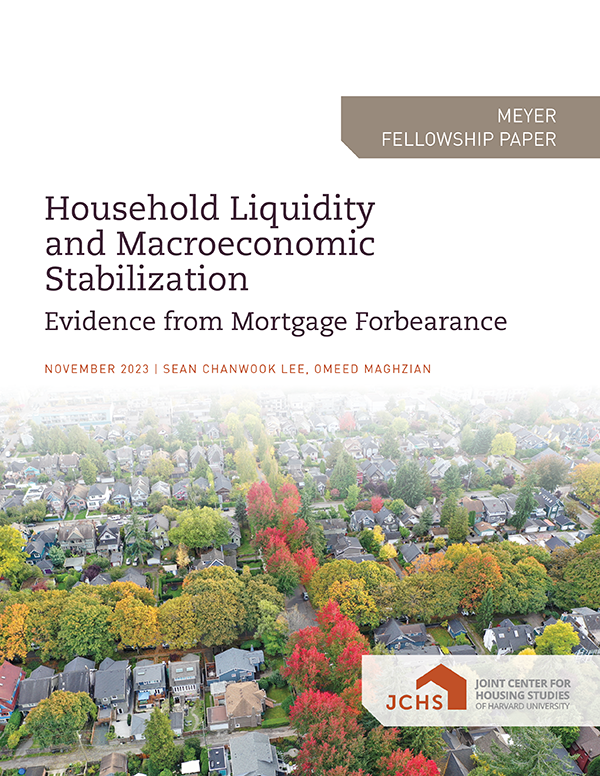Household Liquidity and Macroeconomic Stabilization: Evidence from Mortgage Forbearance
This paper estimates the impact of household liquidity provision on macroeconomic stabilization using the 2020 CARES Act mortgage forbearance program. We leverage intermediation frictions in forbearance induced by mortgage servicers to identify the effect of reducing short-term payments with little change in long-term debt obligations on local labor market outcomes. Following statewide business reopenings, a one percentage point increase in the share of mortgages in forbearance leads to a 30 basis point increase in monthly employment growth in nontradable industries. In a model incorporating geographical heterogeneity in intermediation frictions, these responses imply a household-level marginal propensity to consume out of increased liquidity that aligns with existing estimates for direct fiscal transfers. The implied debt-financed fiscal multiplier effects of forbearance are sizable but depend on the repayment terms of deferred payments and the monetary policy stance.

